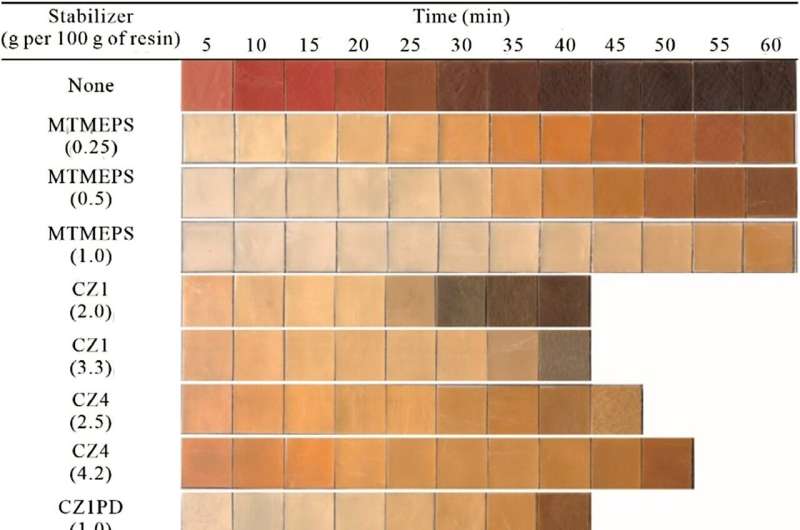This article has been reviewed according to Science X's editorial process and policies. Editors have highlighted the following attributes while ensuring the content's credibility:
fact-checked
proofread
Palm oil by-product transforms into PVC thermal stabilizer with possibilities for recycling and sustainability

The quest for sustainable alternatives to conventional materials has led to the exploration of waste by-products as potential resources. In a novel approach, researchers from the Institut Teknologi Bandung have developed a method to synthesize an organotin mercaptide-based thermal stabilizer from palm fatty acid distillate (PFAD), a by-product of the palm oil refining industry. This development not only offers a solution to the disposal of PFAD but also presents a competitive alternative to existing PVC stabilizers.
The findings are published in the Journal of Bioresources and Bioproducts.
The construction and plastics industries frequently rely on polyvinyl chloride (PVC) for its durability and versatility. However, the thermal stability of PVC is a significant concern, necessitating the use of stabilizers to prevent degradation during processing.
Traditional stabilizers, such as mixed metal stearates, while effective, may not be the most sustainable option. The innovative research conducted by I Dewa Gede Arsa Putrawan and Adli Azharuddin introduces a green alternative derived from palm oil by-products.
The study involved a two-step synthesis process, converting PFAD into mercaptoethyl palmitate (MEP) and subsequently into methyltin mercaptoethyl palmate sulfide (MTMEPS). The synthesized MTMEPS was evaluated for its thermal stabilizing effects on PVC and compared with mixed metal stearate in terms of efficacy and economics.
The results were promising, with MTMEPS demonstrating superior thermal stability compared to mixed metal stearate at a lower dosage. The study employed dehydrochlorination tests and two-roll mill discoloration tests to evaluate the performance of the synthesized stabilizer. The findings indicate that MTMEPS not only enhances the thermal stability of PVC but also does so more effectively and economically than conventional stabilizers.
The economic evaluation of MTMEPS revealed that its production cost is competitive, with a raw material cost of 6.52 USD/kg and an estimated market price of 13.00 USD/kg. This positions MTMEPS as a viable economic alternative to traditional stabilizers, considering its performance and the lower dosage required.
The research concludes that the valorization of PFAD for PVC thermal stabilization is a significant step towards sustainable material use and waste management. The findings open avenues for further research and development in the use of by-products for value-added applications, contributing to a circular economy in the chemical and plastics industries.
More information: I Dewa Gede Arsa Putrawan et al, Valorization of Palm Oil Refining By-Product for Organotin Mercaptide as a Polyvinyl Chloride Thermal Stabilizer: Synthesis, Efficacy and Comparison to Mixed Metal Stearate, Journal of Bioresources and Bioproducts (2024). DOI: 10.1016/j.jobab.2024.06.001
Provided by Journal of Bioresources and Bioproducts





















